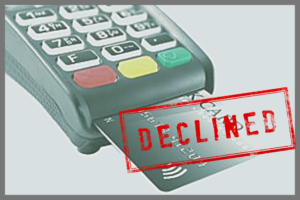If you take credit card payments at your business, you will, inevitably, at one time or another, face a chargeback. And resolving those chargebacks can eat up a huge amount of time and resources — something most small businesses don’t have much of.
The good news: with a little preparation and education, you can put practices in place to make the chargeback process a lot less painful — and way more effective.
So, you got a chargeback notice. Now what? Follow these best practices:
1. Check the reason code
When you receive a chargeback notice, the very first thing you’ll want to do is check the reason code. The reason code will give you valuable details on the reason why the customer decided to dispute the payment in the first place.
Not only will this help you understand why the customer is disputing the payment, it may provide insight into how to prevent chargebacks for your business going forward.
For instance, one of the most common reasons for a chargeback is that the customer doesn’t recognize the charge on their statement. If that’s the case, you could consider using dynamic descriptors to make sure your charge descriptions are ultra-clear.
Side note: Dynamic descriptors allow a merchant to define what appears on their customer’s credit card statement regarding the purchase. You can include specifics like the product purchased, business name, business location, and contact information. An example of a dynamic descriptor would be: ABC Inc. Annual Membership Renewal 8885551212 versus a static descriptor like: ABC Inc. 8885551212.
2. Make note of important deadlines
After checking the reason code, you’ll want to make note of any important response deadline, since there is a limited timeframe to respond to a chargeback.
The typical timeframe to respond to a chargeback is 120 days; however, in some cases, the timeframe may be longer or shorter depending on the chargeback reason code.
Making note of the deadline to respond is useful in that it helps ensure you don’t miss the window to go to the dispute process, if that is how you decide to proceed.
3. Consider resolving through proactive customer service
Most times, a chargeback request is initiated by a frustrated customer that couldn’t easily recognize where the charge is from.
Before proceeding to the dispute process (a process that involves you, the merchant, having to provide proof that the transaction is valid and can also mean extra processing time and cost to you, and possibly a loss of revenue), consider taking a moment to contact the customer directly to resolve the problem.
Most times, the dispute process can be avoided by contacting the customer. Customers will appreciate that you took the time to proactively contact them and hear them out, and the customer will, most likely, reverse the chargeback by contacting their card issuer.
Again, this proactive contact could go a long way in not just providing stand-out service to your customer, but alerting you to issues that’ll help you prevent chargebacks from happening in the first place.
Chargeback prevention is just as important
While handling chargebacks in the most effective manner is important to your business, it’s also hugely important to put practices in place to prevent a customer from charging back a payment. For chargeback prevention tips, check out our blog article: 7 Ways to Proactively Prevent Credit Card Chargebacks.
If you’d like more information on chargeback prevention, and how Constellation Payments can assist, don’t hesitate to give us a call at 888.244.2160.
Last, but not least, sign up for chargeback alerts
How can you respond to chargebacks if you don’t know a chargeback occurred?!
A great layer of protection for your business is to sign up for chargeback alerts that notify you of any payment disputes posted to your account within 24 hours. You can choose to be notified by fax, or have the chargeback alerts sent by email and online alert. Setting yourself up with chargeback alerts helps ensure you can begin proactively handling chargebacks as soon as they occur.
To sign up for chargeback alerts, contact our Merchant Services Support team at 888.244.2160.




